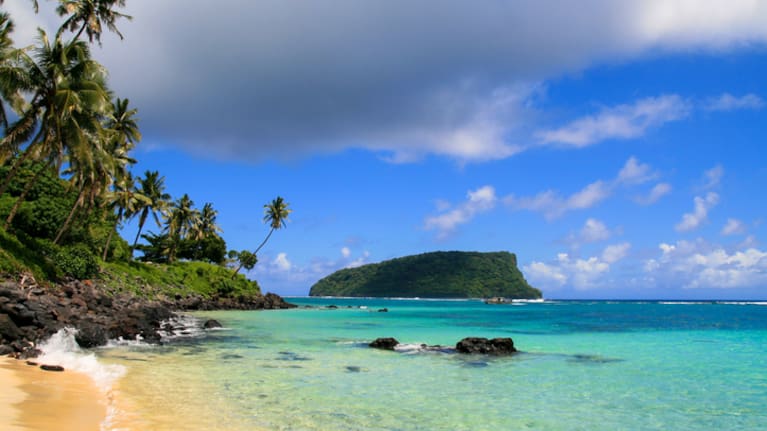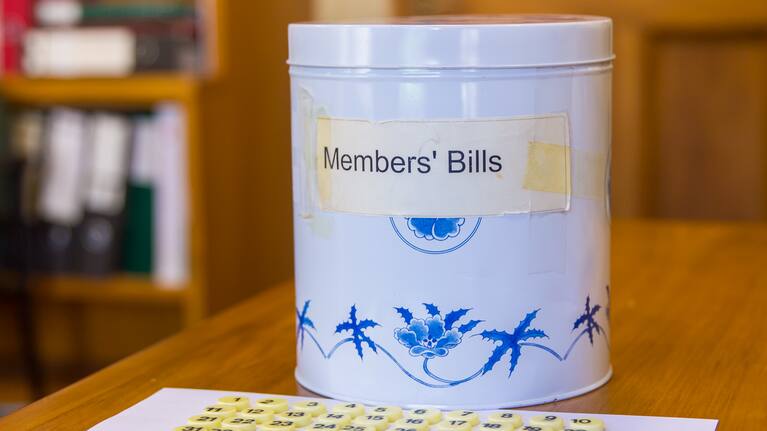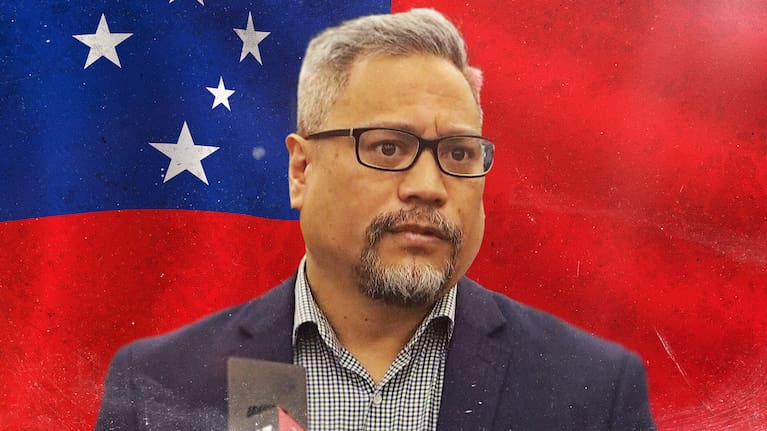Last night, for the first time since the new Government was formed, it split its votes: National opposed a bill, while ACT and New Zealand First supported it. What happened?
The break from the usual cohesive way the three Government parties vote came after 5pm last night, with the National Party voting against a member's bill from the Greens' Teanau Tuiono. New Zealand First and ACT voted for it. The vote was the first reading of the bill, and passed. It will now progress to Select Committee.
It's not impossible — although it is unusual — for an Opposition member's bill to pass its first reading, let alone pass into law.
What's the bill?
The Restoring Citizenship Removed by Citizenship (Western Samoa) Act 1982 Bill would create a pathway to citizenship for Samoans who were born between 1924 and 1949. In 1982, the Sir Robert Muldoon-led National government passed a law removed citizenship from Western Samoans who had attained it before New Zealand citizenship existed.
New Zealand citizenship was created in 1948. Prior to that, New Zealanders were British citizens. At the time of the change, Western Samoa (now known simply as Samoa, as opposed to American Samoa) was administered by New Zealand — making those born in Western Samoa, administratively New Zealanders.
But, in a case brought in 1982, it was argued a Samoan citizen living in New Zealand was an overstayer. The woman, Falema'i Lesa, argued she was not an overstayer as she was a New Zealand citizen.

The case reached the Privy Council — the highest appellate court, later replaced by the New Zealand Supreme Court. It found that, because New Zealand law had previously considered Western Samoans born after May 13 1925 as British subjects as other New Zealanders, those people also received New Zealand citizenship when it was established in 1948.
But the then-National Government, led by Muldoon, passed a law overriding the Privy Council decision, and removed New Zealand citizenship for Western Samoans born between May 13 1924 and January 1 1949, as well as anyone claiming citizenship through them either by descent or marriage.
While not restoring citizenship to those estimated up to 5000 people, Tuiono's bill would mean they would be eligible for citizenship as of right instead of as migrants.
Why is it weird there was a split vote?
Not weird — so much as unusual.
Under the previous Labour-majority Government, the Government always voted the same way on legislation in Parliament as it was made up of just one party. However, the new Government is a coalition: it comprises of three separate political parties. National, as the biggest of the three, leads the coalition with Prime Minister Christopher Luxon at the helm. Forming the numbers to govern is the New Zealand First and the ACT parties.
Why did Act and NZ First vote against National on the Samoan Visa Bill? (Source: 1News)
With Government bills, it's usually the case — and has been so far — that the Government parties have done their negotiating behind the scenes, including around the Cabinet table, to reach agreement. That means when votes are held on bills, they all move as one Government. Everyone's in favour, since it's a Government bill.
But Tuiono's bill is a member's bill — drawn from the biscuit tin. Yep, a biscuit tin.
Member's bills are pretty much the only way an Opposition member can get their bills on the Parliamentary order paper and — because by definition the Opposition is outnumbered — they almost always get voted down.

But because there was — ostensibly — no behind-the-scenes three-way decision making, the parties were free to make the call on whether they supported Tuiono's bill or not. That's exactly what happened.
It doesn't mean the coalition Government is already tearing itself apart from disagreement. It just means the parties had different views on the progression of this specific bill at this stage.
Whether the votes change at second reading remains to be seen — it's not a law yet. It now proceeds to Select Committee, where the public will be able to make submissions on it and have their say, before the Select Committee's members make their recommendation to the House.
So what were the arguments for and against?
Against: The National Party was the only party to vote against the bill moving forward to select committee.
National MP Cameron Brewer said during the debate on the bill that the party was concerned it created a legal precedent and it was "not appropriate" for it to proceed as a member's bill.
"Legal experts will say to you that retroactively... reinstating the citizenship of citizens affected by this Act sets a problematic precedent, and we want to ensure, as have previous administrations, led by 10 previous Prime Ministers over four decades, that we have a legal framework in place that equates to fairness and equity.
"Our concern is that it does create a number of unprecedented measures, and it also creates a situation where we have got a focus at the moment on managing the immigration settings and adopting them accordingly to fit today's demands."
For: New Zealand First, ACT, Greens, Labour, Te Pāti Māori
New Zealand First's Casey Costello: "We support our Pacific neighbours and the communities that make up our country. That is why New Zealand First will be supporting this bill to select committee.
"Now this member's bill is before the House, we think it is an important consideration."
ACT's Parmjeet Parmar: "We believe in equality. We believe in fairness ... We would like to hear from submitters; what submitters have to say on this bill. We would also like to see what advisers have to say on this bill."
She said it would be important for the select committee to hear from all New Zealanders on the bill, not just the Pasifika community.
"Our support is at this stage only for the first reading.
"By passing that [1982] legislation, what New Zealand did was perfectly fine within the legal framework of that time.

"We want to say that we do not see that that 1982 Act was about being racist."
Greens' Teanau Tuiono: "Fairness is at the heart of this bill. We had a group of New Zealand citizens who had their citizenship recognised and then had that citizenship removed by statute. That is unfair — plain and simple. States should not be able to remove citizenship wholesale like that. It is unjust."
Labour's Carmel Sepuloni: "We are talking about 3000 to 5000 people, not all of whom would want to take the opportunity up. It is the right thing to do, at least to allow the bill to go to select committee. Off the back of the significant contributions Samoans have made to Aotearoa, it is the right thing to do. On behalf of the nearly 200,000 Samoans who have made New Zealand their home, it is the right thing to do."
From Te Pāti Māori, Mariameno Kapa-Kingi: "The bill will restore the right of citizenship to our Samoan community born between 1924 and 1949 that was stripped away with the introduction of the Citizen (Western Samoa) Act of 1982. Amendments to this bill will remedy and illustrate restorative action to the racial discrimination that our Pacific community were most certainly subject to during this time period."



















SHARE ME